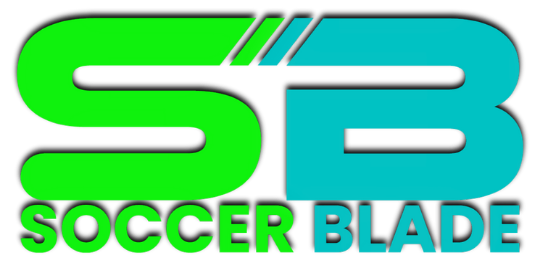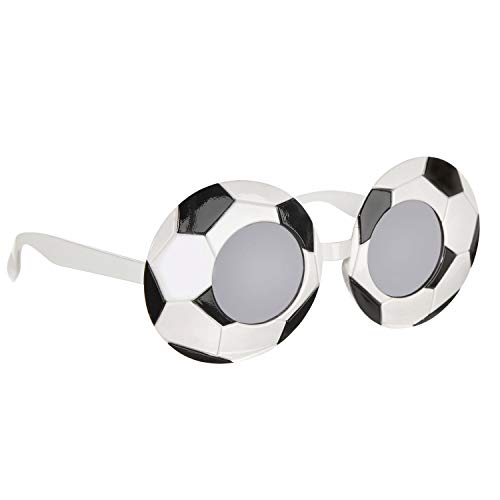Share the post "Playing Soccer with Glasses (Soccer Glasses +)"
I’ve had dozens of teammates over the years who wore glasses, but none who wore them during soccer.
Understandably, many parents and new players often wonder if you can play soccer with glasses.
Today, we’ll cover everything you need to know, including:
- The laws of the game
- Risks of wearing glasses during soccer
- Alternative options
Don’t worry, there are a few safe options for soccer players who need vision aids during sports.
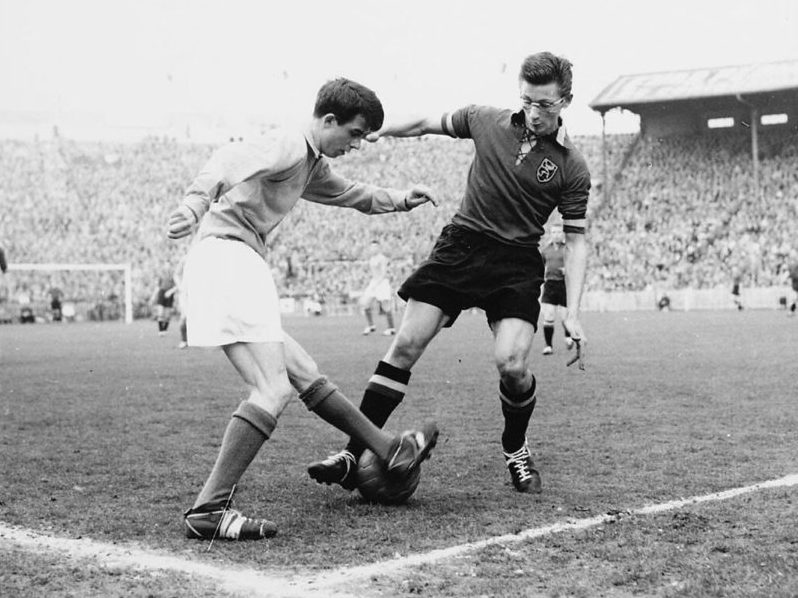
can you wear glasses while playing soccer?
The short answer is that soccer players can wear a certain type of glasses while playing. FIFA soccer laws permit the use of sports spectacles, but this does not include everyday glasses.
The Law on Player’s Equipment and protective gear specifically states that “sports spectacles” are permitted.
Everyday glasses are not permitted based on the rules of the game, and most referees will not allow them. The reason is simple: regular glasses pose a serious safety hazard for both the wearer and opponents.
A player must not use equipment or wear anything that is dangerous.
FIFA Law 4.1 Player’s Equipment
Reasons Not to Wear Glasses While Playing Soccer
Regular glasses pose a safety risk to players during soccer. Even if your coach allows you to wear them during training, you should not ever wear glasses during soccer.
Here are the biggest reasons not to play soccer while wearing glasses:
- They are weak and not made for high-impact, contact situations.
- Easily slip and slide off the face, making them more of a distraction than an aid.
- Prone to damage, which is expensive to repair.
- Can cause serious damage to the face and eyes of the wearer.
- Risk of permanent blindness, should the glasses break into the eye.
- Could injure aother player on the field.
Alternatives to Regular Glasses for Soccer Players
You cannot wear regular glasses during official matches, and you should not wear them when training or playing for fun.
Does that mean you are doomed to blurry teammates and strained eyes? Nope! There are plenty of alternative options for soccer players including:
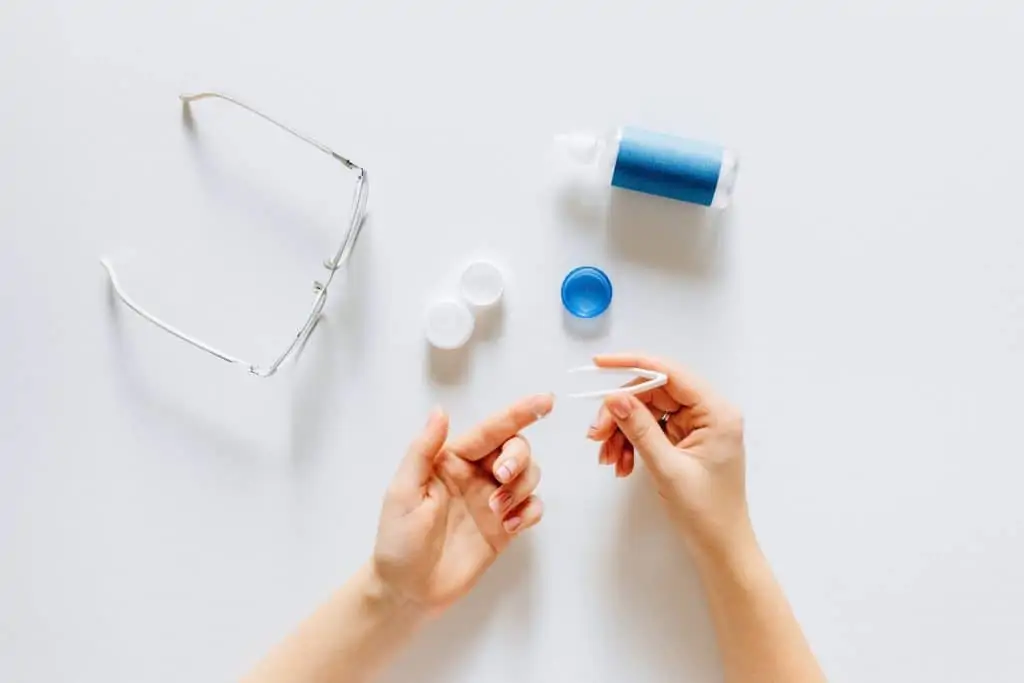
Contact Lenses
One of the most common alternatives to glasses is contacts. Contact lenses are round, soft, and rest over the eye, aiding vision in all directions.
Unlike glasses, contact lenses do not rest on the face. Even if you do get hit in the face, the lens will not break, shatter, or otherwise damage your eye.
Many professional soccer players wear contact lenses including:
- Christiano Ronaldo
- David De Gea
- Mario Balotelli
Goalkeeper David De Gea has 123 clean sheets in 346 appearances! He was the 2017/2018 Golden Glove winner and has made over 946 saves. Clearly, the contacts are a great solution for him!
Still, contacts are not risk-free. A few downsides to keep in mind are:
- Contact lenses may be difficult to apply at first.
- Dirt and/or debris may get into the lense, and it must be washed out if this happens.
- While rare, the lense may be dislodged and fall out.
Despite the few downfalls, contact lenses are a popular choice. Keeping an extra pair of contacts and contact solution in your bag is often a helpful solution for any of the risks above.
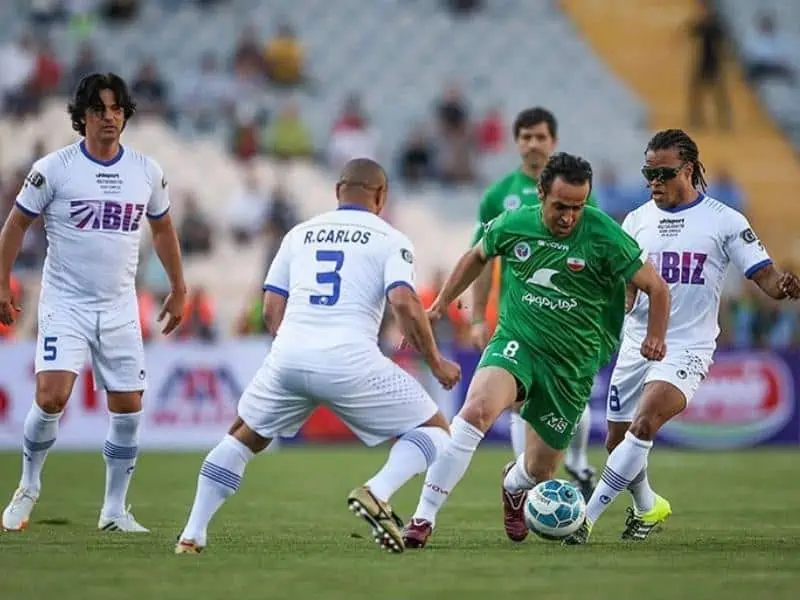
Sports Glasses
Another option is sports glasses, which are shatterproof. These are designed for sports use and can withstand the demands of soccer.
Still, sports goggles are lightweight while offering eye protection. This makes them a great option for those with eye conditions.
Since sports goggles are designed to withstand immense force and are secured to your head, they are permitted by the laws of the game.
Of course, sports goggles are not perfect. Here are a few of the top cons:
- Many people do prefer like the appearance of sports goggles. This can be especially difficult for kids.
- Some players may not like the feeling of wearing them during play.
- They are more expesnive than regular prescription glasses, and insurance coverage on these glasses varies.
Sports goggles are a common choice for children. They do not require the expertise of contact application, and the band around the head keeps them snug and secure.
Professional soccer player Edgar Davis is one of the most well-known players to wear sports glasses. He opted for this solution to protect his eyes after surgery for glaucoma.
- SPORTY DESIGN: Stand out from the crowd with these White &…
- LIGHTWEIGHT & DURABLE: Made from high-quality, durable…
- SINGLE-PIECE PACK: This single-piece pack ensures that you…
- PARTY OR SPORTS-READY: Be the life of any event with these…
- UNIQUE FASHION STATEMENT: Not just a practical accessory;…
- Material: PC (Polycarbonate), Silicone. The width of lens…
- PC material frame and explosion proof lenses,protect your…
- High Permeability, whole performance ventilation design to…
- Soft gel materials nose pad and glasses side temple for…
- Suitable for basketball, football, volleyball, baseball,…
- Note: The sports glasses are easy to disassemble and easy to…
- Material: Nylon frame,polycarbonate lens,impact resistant…
- Basketball glasses are made of high quality Nylon material…
- Wide range of applications: Sports Racquetball Goggles…
- Package include:1x sports goggle glasses,1x sports goggle…
Product: Updated 2024-07-24 | Images: Amazon Product Advertising API | #ad – soccerblade.com is an Amazon Associate
If eyesight is very poor, it’s best to speak with your eye doctor (or your child’s eye doctor) about sports goggles, as they require a prescription.
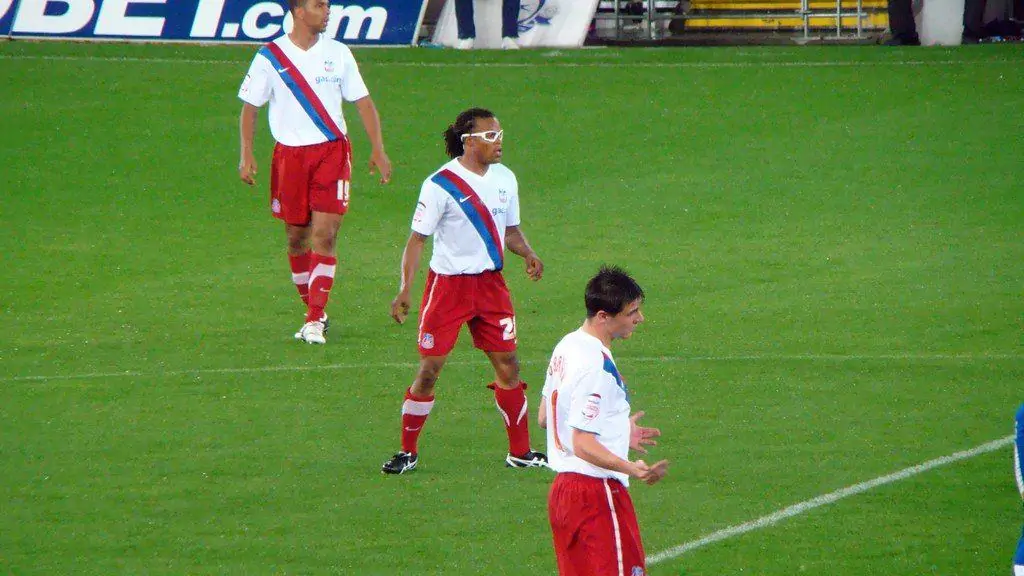
Laser Eye Treatment
If you play soccer very often, laser eye surgery may be a good option. Switching out contacts or dealing with sports goggles can be a hassle, and laser treatment offers a more permanent solution.
Of course, you must consult with your doctor to determine if laser eye surgery is a good option for you. If you are a candidate it may be worth considering, especially for collegiate or professional athletes.
Still, laser eye surgery does have some considerations. One of the biggest downsides is its cost. Laser eye surgery is certainly more expensive than glasses, sports glasses, or contacts.
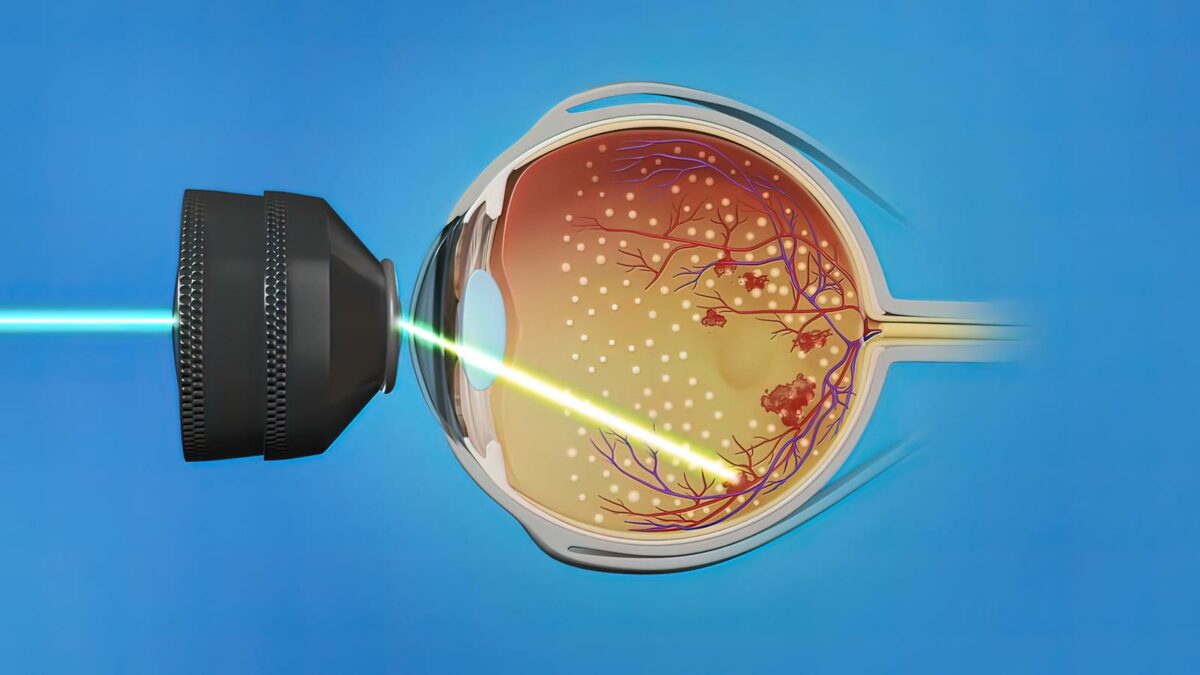
Why Good Vision Matters in Soccer
Many soccer players wonder if they really need to wear anything for eyesight during soccer.
Ultimately, this is a personal choice. Those with very very mild vision impairment may not need any form of vision assistance during soccer.
For example, I got a very mild prescription for glasses in college. I was struggling to see the board sometimes in classes, and glasses were covered under my parent’s insurance.
While the glasses helped me with very far away, small things, I never got contacts or sports glasses for soccer, and never felt the need to.
Not every soccer player who wears normal glasses will need glasses during soccer. However, optimal vision during soccer is extremely important.
Some of the ways we use vision to play soccer include:
- To identify teammates vs opponents (see jersey colors, especially out of peripheral vision).
- Track the ball, and perform the associated action based on the speed and direction the ball moves.
- Assess where the out of bounds area is.
- Combine several visual inputs to react (aka, “read the game”).
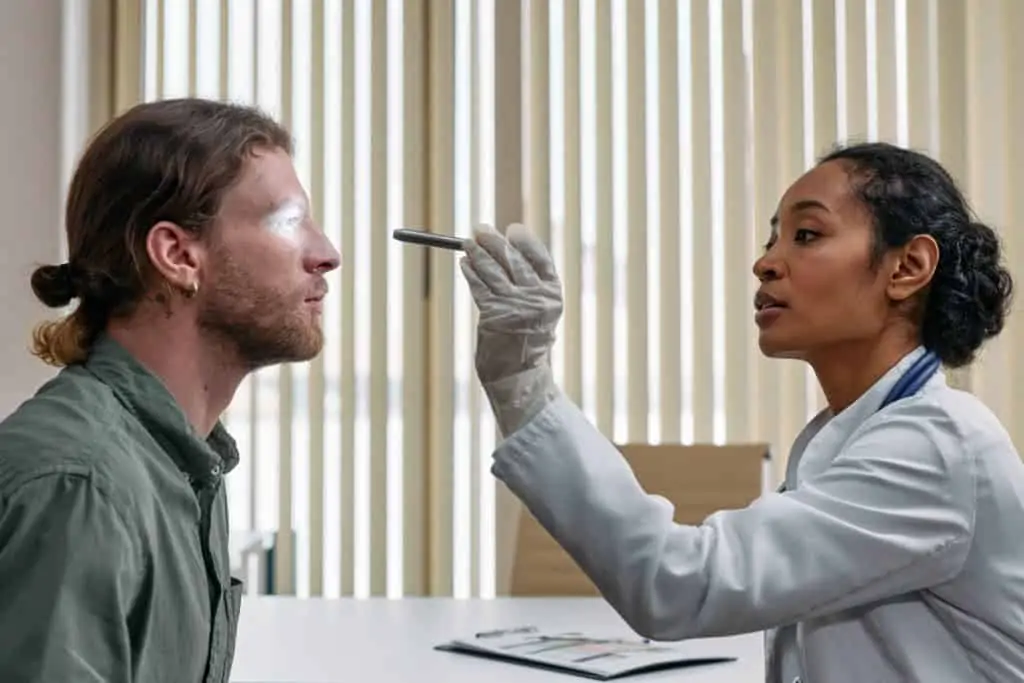
Conclusion
Simply put, you cannot and should not wear regular glasses during soccer. However, vision is essential during the sport.
If you need regular glasses, there’s a good chance you may need vision assistance during soccer. Work with your eye doctor to determine the best solution for you, whether contact lenses, sports glasses, laser eye surgery, or another unique method.
Share the post "Playing Soccer with Glasses (Soccer Glasses +)"
Joel is a seasoned soccer journalist and analyst with many years of experience in the field. Joel specializes in game analysis, player profiles, transfer news, and has a keen eye for the tactical nuances of the game. He played at various levels in the game and coached teams - he is happy to share his insight with you.
